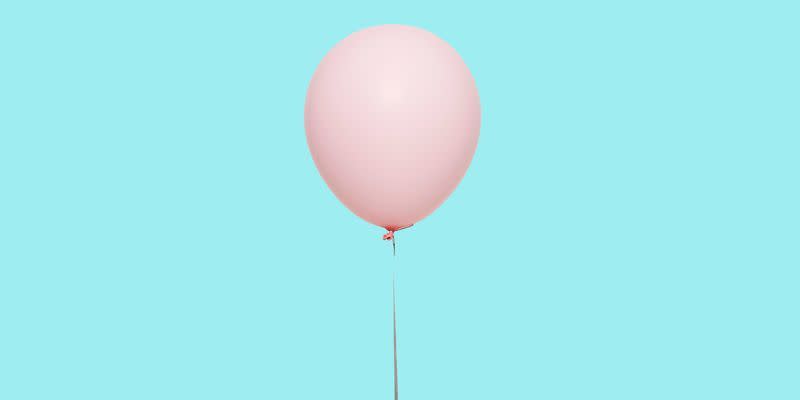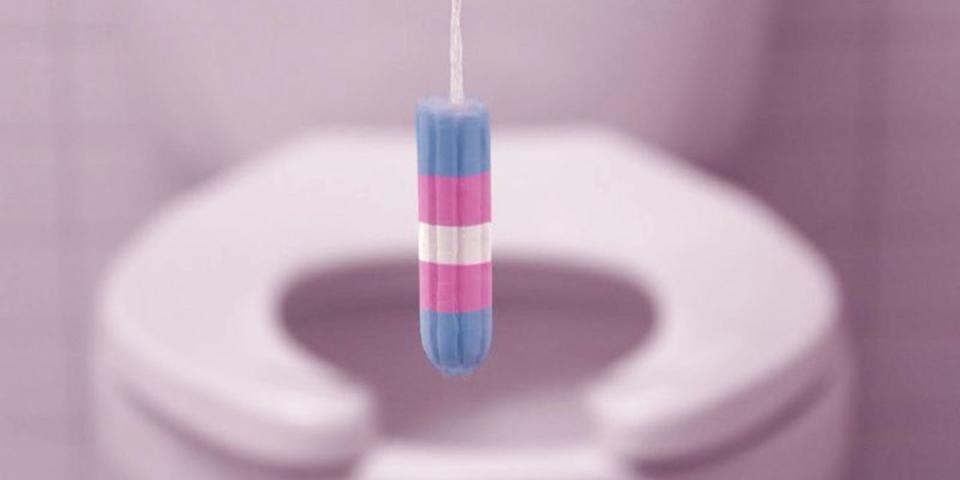Painful period bloating got you good? How to manage TOTM bloat

Along with other less-than-desirable side effects of your period, which include eating literally everything in sight and enduring the uncomfortable hum of stomach cramps, is the inevitable bloating.
During the four-to-seven days of your period (depending on how your body works), the bloat arrives and, with it, comes an increased desire to wear pyjama bottoms 98% of the time.
Fun fact: bloating is actually a very common symptom of Premenstrual Syndrome (PMS), which as many as 3 in 4 women have at some point in their life, according to Dr Daniel Cichi, GP and medical advisor at Doctor 4 U. "Bloating or some form of digestion problem is very common just before or during a period," he explains.
But ever wondered why bloating occurs during your time of the month? Read on.

Why you get period bloating
As Dr Penelope Law, Consultant Obstetrician and Gynaecologist at HCA UK's The Portland Hospital, explains: "The uterus contracts daily in a mild, almost imperceptible manner."
"As you get closer to your period, these oscillating waves - usually from the fundus (the upper end of the uterus closer to the belly button) work their way down to the cervix - with a frequency of about every 40 minutes. During your period these are more intense - they originate from the lining of the uterus, called the endometrium, and are responsible for the pain some women feel," Dr Penelope told Cosmopolitan.com/uk.
Although menstrual bloating is linked to these 'contractions', the expert explained how it's actually your digestive system, and not your reproductive system, that causes the swelling of your lower abdomen during your monthly bleed.

"During menstruation, the bowel works more slowly because the increased contractions, ‘waves’, of the uterus have an impact on how quickly food moves through the digestive system, known as peristalsis," Dr Penelope said.
"This leads to the familiar swollen feeling many women experience whilst on their periods and can also be linked to why you can feel more constipated during menstruation."
Interesting.
Is it just my TOTM causing my bloating?
Of course, there may be other contributing factors to the cause of bloating on your period, like water retention. As explained on Medical News Today, this is linked to "changes in levels of the sex hormones progesterone and oestrogen.
"About a week before a woman's period starts, levels of the hormone progesterone fall. Research suggests that changes in progesterone and oestrogen levels cause the body to retain more water and salt. The body's cells become swollen with water, causing the feeling of bloating," the medical site reads.
So now you know: you're bloated on your period due to a mix of excess water and full bowels. Delightful.
3 period bloating remedies
Wondering it there are any foods or remedies that can help you de-bloat? Dr Cichi has some answers for you. "Usually, what you’re eating could be making your bloating worse," he shares. So, when you're due on your period or experiencing period bloating, trying the following could ease your symptoms:
Avoid:
Processed foods
Anything high in salt
"Processed foods, like chips, crisps, biscuits, chocolate and sweets, can really exacerbate bloating," shares Dr Cichi. Instead, opt for lots of:
Eat and drink lots of:
Fruit
Vegetables
Whole grains
Nuts
Probiotics
Peppermint tea
Water
Dr Cichi explains that the foods outlined above can really beneficial for your digestive system, and in turn, help reduce bloating.
3 things to do to ease period bloating
Drink lots of water
As above, drinking enough water is key here. "On the days leading up to your period, make sure you’re increasing your water intake," advises Dr Chichi. Drinking lots of water while you’re bloated may seem a bit odd, but actually, it will help get your digestive system moving and prevent wind and constipation, it will also help to flush out any excess water and sodium, and reduce swelling. Interesting.
Increase your physical activity
Again, probably not something that'd spring to mind, but this is also key. Exercise can help with all symptoms of Premenstrual Syndrome (PMS), but particularly any pains, cramps, or discomfort around your digestive system. Don’t underestimate how effective exercise can be for bloating, it helps to expel gas and gets your digestion working normally.
Visit a GP
If lifestyle changes aren’t working for you, Dr Chichi points out that there is the option of the contraceptive pill. "The pill can reduce PMS symptoms, such as period bloating, but it’s about finding one that suits you and it may not work for everyone". Do note here: some women find that bloating is a side effect of the pill, however, for other women it can help. If at all interested, it's worth booking an appointment with your GP for some expert advice.
The latest issue of Cosmopolitan UK is out now and you can SUBSCRIBE HERE.
Like this article? Sign up to our newsletter to get more articles like this delivered straight to your inbox.
You Might Also Like


